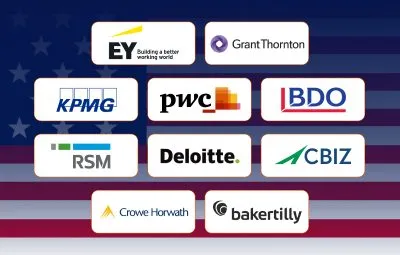As a small business owner, you’re regularly confronted with a range of challenges. And if not handled effectively, these can run your business and even your personal life into the ground. For example, if you don’t have the time to properly assess an issue and how to resolve it, you could create an even bigger problem. This is why effectively managing your time is so important. Successful business owners know that it’s not always about how hard you work, but how smart you work.
1. Plan Your Day
Whether at the beginning of the day or the end of the night, plan what you want to accomplish during working hours. Prioritize your list by labeling urgent items that must get done, less-urgent items that must get done, and bottom-level tasks that aren’t yet a priority, but would be great to get out of the way. As you complete tasks, mark them off. If there are tasks you don’t complete, simply move them to the next day’s list.
2. Set a Loose Schedule
One of the greatest benefits of small business ownership is that, in most cases, you can set your own hours. But if you abuse that benefit and run without a schedule, productivity will suffer. There’s no need to schedule every last task into your day. Instead, develop a loose schedule, and adjust it as needed. Roughly plan when you will work on specific tasks, but be flexible in case something urgent comes up. You can also schedule “open” time during your day to work on projects that were interrupted, or to address your to-do list in order of priority.
3. Maximize Your Up Time
Different people work better at different times of the day. Know when you’re at your best and schedule high-priority tasks during that time, if possible. For example, if you wake up energetic and ready to go, but feel sluggish by day’s end, work on the most important and most difficult things in the morning. Save the “easy stuff” for later in the day, such as checking emails and voicemail.
4. Reduce Interruptions
This is easily the most important time management tip for small businesses, especially if your business is online. In fact, reducing or eliminating interruptions helps your small business cut costs. Every time you see an email come in or get a phone call, ask yourself if dealing with it right now will improve the operation of your business. If the answer is no, let it go for the moment and deal with it during the time you schedule for such things. Also, if you have a physical location, create a plan to deal with salespeople that walk in. For example, you could pass them your card and ask them to call you later, or have an employee take their information for you to contact if you so choose.
5. Take Breaks
It may seem counter intuitive, but taking scheduled breaks can make you more productive. How many you need per day and for how long is up to you, but if you put them off, you risk burn-out. A break could involve a brisk 10-minute walk, 15 minutes of silence, or a 30-minute workout. What it is doesn’t exactly matter as long as it’s something that gets you out of the head-space of work, so that when you return to work, you’ll feel refreshed. Working nonstop may seem like a good idea, but burning yourself out and minimizing your productivity will do neither you nor your company any good.
Closing
Measure how effectively you’re managing your time by setting goals for yourself. Determine what you think is reasonable to accomplish by 30, 60, and 90 days. Then, determine what would be ideal to accomplish by those points. See how close you get. If you find yourself falling short, examine why and see what you can do to improve. On the other hand, you may need to revise your goals. Just realize that goals and time management are tools by which to improve your productivity, business success, and quality of life. Do not lambast yourself by not meeting them. Simply revise your goals or approach, and try again.
What ways can you think of to better manage your time?
(Do you happen to drop by our Blog often? Follow @Invoicera on Twitter and never miss an update. To know how your business can take advantage of online billing and online time tracking, shoot us an email at support[at]invoicera[dot]com)
Author Bio
Fred Gardner is a small business owner, productivity enthusiast, and finance columnist. He writes about entrepreneurship, accounting, and technology.











